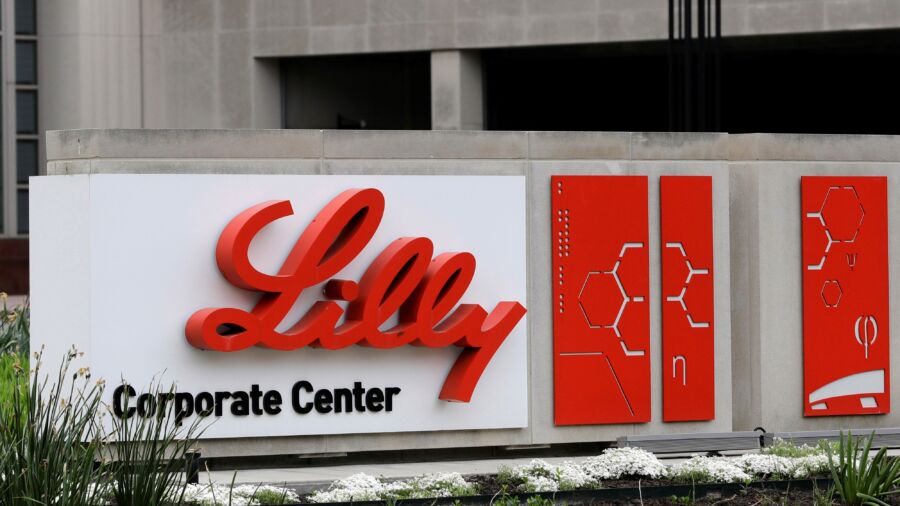Drugmaker Eli Lilly warned this week that two of its formulations of insulin would be temporarily out of stock through the beginning of April, citing a “brief delay in manufacturing.”
The 10-milliliter vials of Humalog and insulin lispro injection will be in short supply at wholesalers and some pharmacies, Lilly said in a statement posted online Wednesday. The company said that prefilled pen versions of those medicines are still available in the US and that it continues to manufacture the 10-milliliter vials “and will ship them as soon as we can.”
More than 8 million people in the US rely on insulin to survive, according to the American Diabetes Association. Although other forms are available, it’s not always simple for patients to switch between different brands of insulin or delivery methods, said Laura Marston, an advocate for lower insulin prices who has type 1 diabetes and uses Humalog.
Marston said she gets a reaction when she uses an alternative brand, and she relies on Humalog vials for her insulin pump. She said she may be able to use the prefilled pens for her pump, but her insurance covers only vials, via a complicated step known as prior authorization.
“If Lilly doesn’t fix this fast, I actually don’t know what I’m going to do,” Marston told CNN.
With the insurance issues, Marston noted, she may seek a new prescription and try out the company’s coupon program offering insulin for $35 for those without insurance—a complicated set of steps to access a medicine that people with diabetes rely on to live.
Lilly said in its statement that the company recognizes “that any supply challenge may cause a disruption in people’s treatment regimens, and we are moving with urgency to address it.”
People who have trouble getting their prescription filled should contact their health-care provider to discuss switching to the same insulin in a prefilled pen “or other insulin treatment options,” Lilly said. The company also suggested that patients check other pharmacies.
Those who need insulin immediately “and cannot access their healthcare provider for an alternative treatment option should seek emergency care,” Lilly said.
More than 6 million units of insulin lispro injection, the form facing the supply disruption, were sold in the past three months, said Evan Seigerman, a stock analyst with financial firm BMO Capital Markets, citing data from provider IQVIA. Slightly more than half of those were the vials in short supply, he said. Humalog is the brand name of insulin lispro injection.
“This could be a bit of a problem,” Seigerman said. “Folks will need to use the pens.”
Tarsis Lopez, a spokesman for Lilly, told CNN that the “dynamic nature of insulin supply and demand, coupled with a brief delay in manufacturing, led to the temporary supply constraint.”
Dr. Jeff Jonas, a veteran drug industry executive whose son relies on insulin for type 1 diabetes, said he’d have thought insulin “demand and supply are pretty predictable, so when something like this happens, it really heightens the sense of insecurity amongst patients about the supply of their drug.”
Jonas said he’d been worried about the prospect of shortages since Lilly and other makers of insulin announced major price cuts on the drugs last year.
“My concern as a parent in this whole area is the notion that if you set a price that’s arbitrarily too low, you run the risk of disincentivizing manufacture and further investment,” Jonas said, noting that he has no specific knowledge of what’s driving the situation at Lilly.
Drug shortages are an increasing problem in the US and oftentimes happen with older medicines whose prices have fallen because their patents have expired but are still complex to manufacture.
Disruptions in access to insulin, Jonas said, “can be life-threatening for patients.” He noted that the feeling of insecurity could lead to stockpiling, which could exacerbate shortages further.
Lilly and other manufacturers of insulin said last year that they would reduce the list price of the drugs by 70 percent, under pressure from patient advocates and politicians, and after a law affecting Medicaid rebates took effect that would have cost the companies money because of price hikes taken on insulin over the years.
The companies have also put into place programs that enable patients to get insulin for $35 a month, with or without insurance; doing so for seniors on Medicare was a key part of the Biden administration’s Inflation Reduction Act. As many as 1 in 4 patients has reported having to ration insulin because of the cost.
Insulin has been a shrinking part of Lilly’s business; Humalog brought in $1.7 billion in revenue for the company last year, down almost 20 percent from the year before. In contrast, the company’s newer drugs for type 2 diabetes and weight loss, Mounjaro and Zepbound, brought in more than $5 billion and are growing so quickly that the company is struggling to keep up with demand.
Lopez said the insulin supply disruption is unrelated to those products, noting, “we take both diseases very seriously.”
Seigerman said he didn’t think “pricing is overly driving the shortage, as it seems to be temporary. Lilly still seems to be doing its job in getting patients these life-saving medications.”
Jonas, now a partner with Boston-based venture capital firm Cure Ventures, said he credited Lilly and other makers of insulin with continuing to ensure a safe, high-quality supply of a drug that’s complex to manufacture.
But he said he and his son, now a young adult who’s used an insulin pump since he was a kid, are feeling anxious about this supply disruption.
The companies are “supplying an important drug,” Jonas said. “The question is: How do we balance the need for affordability with the ability to maintain supply in a way that’s economically feasible for companies to do it?”
The-CNN-Wire
™ & © 2024 Cable News Network, Inc., a Warner Bros. Discovery Company. All rights reserved.


